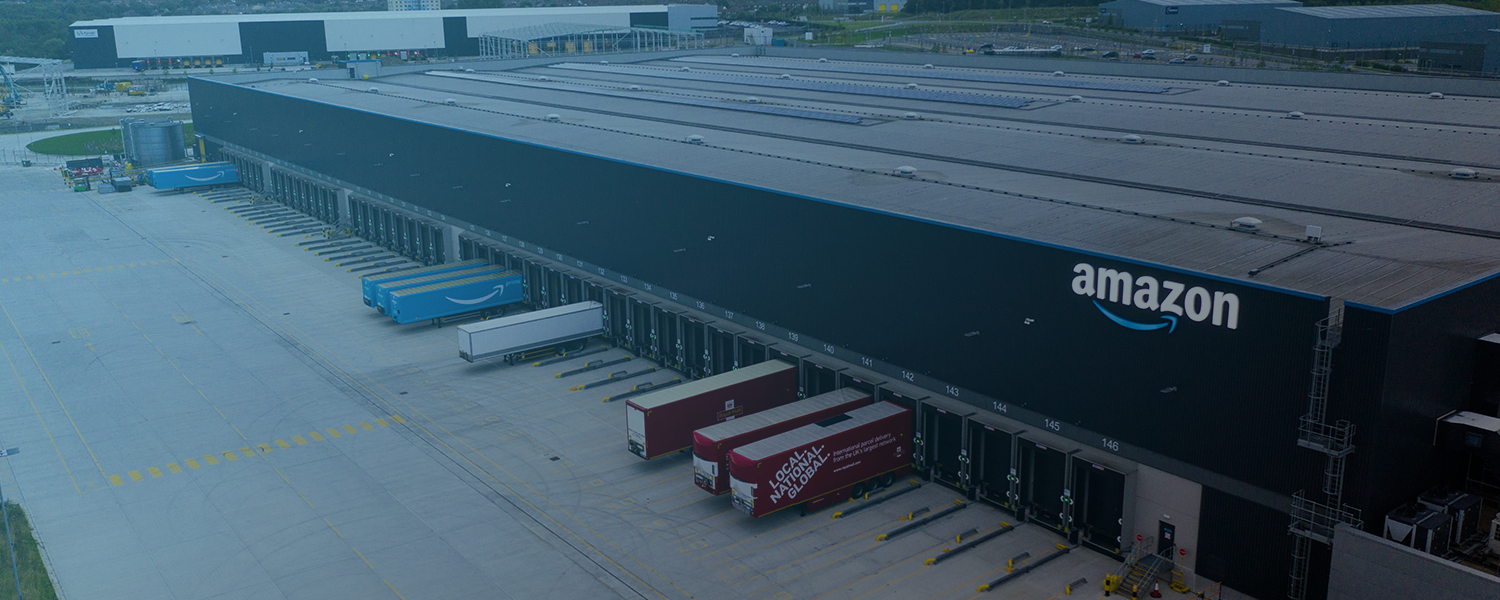In e-commerce, there are numerous business models that can make getting started easier for you. Dropshipping vs FBA (Fulfillment by Amazon) are two of the most popular options that offer you the opportunity to build a successful online business without having to handle the entire shipping process yourself. But how do they differ and which model better suits your goals and resources? In this detailed comparison, we explore all the important differences to help you make an informed decision.
Table of Contents
What is Dropshipping?
Dropshipping is a business model where you offer products that you don’t physically have in stock. Instead, you cooperate with suppliers who handle storage and shipping. As soon as a customer places an order in your shop, you forward this order to the supplier, who ships the product directly to the customer. You therefore act as an intermediary between the customer and the supplier.
For a more detailed explanation of how dropshipping works, you can also check out our post on What is Dropshipping?
Advantages of Dropshipping
- Low startup capital: Since you don’t have to buy products in advance, your financial risk is limited. This makes dropshipping particularly attractive for beginners.
- Flexibility: You can easily add new products to your range or remove existing products without having to manage inventory.
- Scalability: Since you don’t have to worry about storage or shipping, you can scale your business faster by adding more products or increasing traffic to your website.
- Location independence: You can run your dropshipping business from anywhere as long as you have internet access.
Disadvantages of Dropshipping
- Lower profit margins: Since you have no control over the products and often pay higher purchase prices, profit margins tend to be lower than with other business models.
- Dependence on suppliers: Your suppliers determine the quality of the products and the shipping process. Errors on the supplier’s part can damage your reputation.
- High competition: Since entry into dropshipping is easy, there are many merchants selling similar products. Differentiation becomes key here.
- Complex return processes: Returns can become complicated as they need to be processed through the supplier.
What is Fulfillment by Amazon (FBA)?
With FBA (Fulfillment by Amazon), you use Amazon’s huge logistics infrastructure. You store your products in Amazon’s fulfillment centers, and once a customer orders through Amazon, Amazon takes care of storage, packaging, and shipping. This is an enormous relief for merchants who want to outsource the logistics process while taking advantage of Amazon Prime and the broad customer base.
Advantages of FBA
- Amazon Prime program: Your products are available to Prime members, which can significantly increase sales opportunities, as Prime users prefer free shipping and fast delivery.
- Automated logistics: Amazon handles all logistics for you, including packaging, shipping, and customer service. You can focus on marketing and sales.
- Customer trust: Customers trust Amazon, which increases your sales chances, especially if you achieve high-quality ratings for your products.
- Fast shipping: Amazon offers one of the fastest shipping options on the market, increasing customer satisfaction.
Disadvantages of FBA
- Fee structure: FBA comes with various fees for storage, shipping, and customer service, which can eat into a portion of your profit margins.
- Little brand building: Your products often take a backseat to the strong Amazon brand, making it harder to build your own brand and retain customers.
- Inventory risks: If your products don’t sell, you can be burdened with high storage costs, which increases your risk.
- Strict guidelines: Amazon has strict rules for sellers that can lead to account restrictions if not followed.
Dropshipping vs FBA: A Detailed Comparison
To help you decide between Dropshipping vs FBA, we’ve compared seven crucial factors in detail:
1. Startup Capital and Risk
With Dropshipping, the required startup capital is low since you only pay for products that actually sell. You bear hardly any financial risk as you have no storage costs. FBA, on the other hand, requires an upfront investment since you have to send your products to Amazon before they can be sold. Additionally, there are extra costs for storage if products don’t sell fast enough.
„Dropshipping is ideal for beginners with limited budgets, while FBA requires a more solid financial foundation but potentially offers higher profits.“
2. Shipping Process and Control
With FBA, you benefit from Amazon’s sophisticated logistics system. Amazon takes care of shipping, which often means faster delivery times. Dropshipping, on the other hand, heavily depends on suppliers, which can lead to delays, especially with international deliveries. If control over the shipping process is important to you, FBA is the safer choice.
3. Profit Margins
Since purchase prices in Dropshipping are often higher and shipping costs can vary, profit margins tend to be lower. FBA offers you higher margins as you purchase larger quantities and shipping costs are more predictable through Amazon’s logistics system. However, with FBA, you also need to consider Amazon’s fees, which can be substantial depending on the product.
4. Scalability
Both Dropshipping and FBA are scalable business models. Dropshipping allows you to add new products to your range without much effort, as you don’t need to organize inventory management. FBA is also scalable, but you need to ensure that you have enough inventory at Amazon to handle larger orders. In our post How to Scale Your Dropshipping Business, you can find detailed tips on how to grow with dropshipping.
5. Customer Service
With FBA, Amazon handles all customer service, which saves you a lot of time. With Dropshipping, on the other hand, you are responsible yourself. This can be advantageous if you want to have a direct line to your customers, but requires more effort and coordination, especially when there are problems with deliveries.
6. Brand Building and Customer Retention
If it’s important to you to build your own brand and retain customers in the long term, Dropshipping offers you more flexibility. You can operate your own shop and control the entire customer experience. FBA has the disadvantage that many customers think they are buying directly from Amazon, which makes it harder to build a strong connection to your brand.
7. Time Management and Operations
The time investment differs significantly between these models. With FBA, Amazon takes care of many operational tasks such as shipping, return management, and customer service, freeing up your time to focus on product selection and marketing strategies. With Dropshipping, you’ll spend more time managing supplier relationships, handling customer inquiries, and resolving shipping issues. However, you’ll have more control over the entire business process and can make adjustments quickly without dealing with Amazon’s policies.
Who is Dropshipping Suitable For?
Dropshipping is ideal for beginners who want to start with little startup capital and don’t want to take risks with storage costs. It’s also a good choice for entrepreneurs who value flexibility and product variety, as it’s easy to change or adapt the product range. Additionally, dropshipping offers the chance to develop your own brand and build long-term customer relationships.
Dropshipping works particularly well for those who:
- Are just starting their e-commerce journey
- Want to test multiple product categories with minimal risk
- Value complete control over customer experience and branding
- Prefer location independence and flexible working hours
Who is FBA Suitable For?
FBA is optimal for entrepreneurs who already have a product with strong potential and want to use the advantages of Amazon’s huge infrastructure and customer base. It’s particularly advantageous if you don’t want to deal with logistics and shipping. However, you should be prepared to invest in upfront investments and Amazon’s fees to fully exploit the potential of FBA.
FBA is particularly suitable for those who:
- Have some starting capital to invest in inventory
- Want to leverage Amazon’s massive customer base
- Prefer not to handle logistics, shipping and customer service
- Sell products with good profit margins that can absorb Amazon’s fees
Conclusion: Which Model is Right for You?
Whether Dropshipping or FBA is better suited to you depends on your individual goals, resources, and business strategy. Dropshipping offers flexibility and requires less capital, making it ideal for beginners testing the e-commerce waters. It’s perfect for those willing to handle more customer service aspects but wanting to minimize initial investment risk.
FBA, on the other hand, provides access to Amazon’s world-class logistics network and trusted brand, ideal for sellers who can afford the upfront inventory investment and want to focus on product development and marketing rather than order fulfillment. The model you choose should align with your long-term business vision, available resources, and how much control you want over the customer experience.
Both models offer unique advantages – the decision ultimately depends on your own goals, resources, and business priorities. Many successful e-commerce entrepreneurs even combine both approaches as their business grows, maximizing the benefits of each model.
If you want to learn more about Dropshipping vs FBA, we recommend exploring other posts on our website as well as checking out the official Fulfillment by Amazon resources to make the most informed decision for your e-commerce journey.






